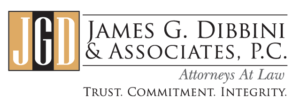The testamentary trust, is a common estate planning tool. It is a trust set forth in a will and comes into existence after death. A will that has a testamentary trust built-in is also known as a “pour-over” will. This is a simple way to have a trust created for the benefit of someone after death. The trust can essentially hold any property for the benefit of the person(s) chosen, also known as the beneficiary(ies).
Testamentary trusts are commonly used to provide for:
- a loved one who has special needs, also known as a “supplemental/special needs trust”
- minor children who stand to inherit from your estate before reaching age of majority, also known as a “trust for minors
- pets to set aside property to be used for the care/needs of your pets, also known as a “pet trust”.
Similar to a living trust, property may be transferred into a testamentary trust, including, but not limited to:
- Real estate
- Stocks and bonds
- Cash
- Automobiles/boats
- Jewelry
- Other personal property
With the testamentary trust, the will states which specific property will make up the principal of the trust. The will also appoints the trustee(s) (a trusted individual(s)) who manage and oversee the trust), states who the beneficiary(ies) are, and provides for the time period and method for how the beneficiaries receive income and/or principal from the trust.
While the testamentary trust is a simple and easy method of establishing a trust, it does have several disadvantages. First and foremost, you do not avoid probate with a testamentary trust. By its very nature, as part of your will, it becomes part of the lengthy and stressful probate process with the Surrogate’s Court. In addition, it may be contested by someone with an interest in your estate, because, as part of your will, it is open to the same vulnerabilities as your will. That is, in order for the testamentary trust to be valid, your will must be declared valid by the Surrogate’s Court.
Let our firm help you determine whether a testamentary trust is right for your estate planning needs. We will work closely with you to ensure you understand the testamentary trust and its benefits vs. its drawbacks. Our focus is to not only understand your needs and goals, but to also ensure you understand the complex issues. In this important process, you are as much involved in the drafting and implementing of the will documents and/or estate plan as we are.
The attorneys at James G. Dibbini & Associates, P.C. have over 20 years of experience in Wills, Trusts & Estates.
In order to learn more about how we can assist you with your Wills, Trusts and/or Estates matter, please feel free to contact us directly at (914) 965-1011.






